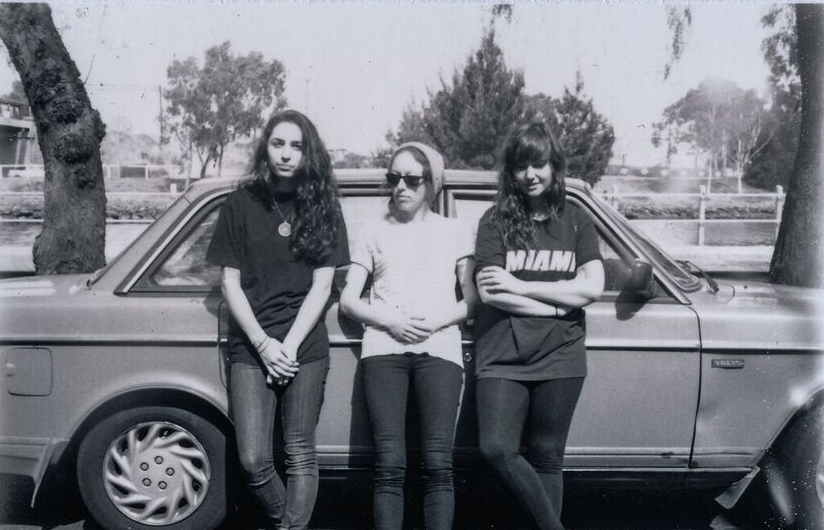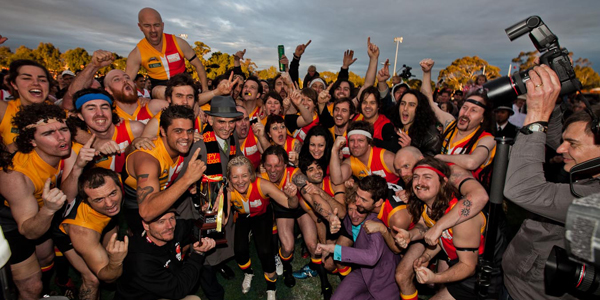As much as gender inequality continues to plague society as a whole, the issue continues to thwart the music industry in grand spades. Like racism and homophobia, it’s ingrained in the bedrock of civilisation, is often hereditary, difficult to mitigate and music as a whole has been unable to escape that.
If you look at female representation on festival lineups, honour rolls, radio airwaves as well as their representation in industry workplaces, female numbers are petite in comparison.
A yearly study completed by triple j’s Hack in March which examined trends from 2008 to 2017 showed that from the top 100 most-played songs in each calendar year across 58 Australian radio stations, solo-female or all-female acts made up, on average, about 28 per cent of the artists represented.
By the numbers 2018: for the third year running, @_angemccormack reports on the gender gap in the Australian music industry https://t.co/0eza9QT8Ak #IWD2018 #GirlsToTheFront
— triplejHack (@triplejHack) March 7, 2018
Stronger female numbers are appearing on triple j’s Hottest 100 year by year while there is also a strengthening female contingent among high school music students however this does not translate into the industry. From the past three Censuses, women have made up only 29 per cent of the people who listed “music professional” as their job.
The upbringing is there but a wall seems to divide education from careers. What’s most glaring is the presence of women higher up — men are making the majority of decisions at the top. In 2017, women made up 35 per cent of the public board members on peak music organisations in Australia but the ARIAs public board is completely absent of any female bearing and this is Australia’s most influential music body.
When Australia’s most influential music bodies assert their persuasive arm, there’s not enough female backing to render it an equal decision and if the age-old issue of male narcissism still resides then female music values and desires aren’t being considered whatsoever.
When we look at Australia’s major music festivals, only Laneway, Listen Out and Splendour in the Grass have shown improvements in female representation over the past three years. According to triple j’s study, Laneway saw the presence of female acts or acts with at least one women rise from 38 per cent to 44 per cent in that period while Listen Out progressed remarkably from a dismal nine per cent representation in 2015 to 37 per cent in 2017. Splendour in the Grass has hovered around 30 per cent but has risen to 43 per cent in 2018. Groovin’ the Moo has reduced the number of women on its lineups over the past three years while Falls Festival has remained consistent.
Considering the presence of non-binary artists as well, Pilerats found the most gender diverse festival during the 2017/18 period to be The Plot. Categorising their study into “percentage of male acts”, “percentage of all-female/non-binary acts” and “percentage of mix-gendered acts”, Pilerats found that 60 per cent of the festival’s lineup were all-female/non-binary acts or mix-gendered acts. In a rare occurrence, male representation paled in comparison.
idiots: “gender diversity is impossible to achieve on a lineup”@ThePlotAU: hold my beer pic.twitter.com/JP5JK0oSUS
— jackson langford (@jacksonlangford) October 30, 2017
While it’s promising to see these improvements being made, such statistics must be taken with a grain of salt — a band of at least one or more female could still result in a one to two, three or four split, depending on the band’s size. For example, 2018 Splendour outfits The Jungle Giants, Cub Sport and Amyl & the Sniffers are four-pieces with only one female member while WAAX is a five-piece with only a single female.
We can see a shift in motion, but there’s still a way to go if we’re going to achieve the desired 50/50 split certifying gender equality.
Encouragingly, there’s now a wave of musicians coming through, brazen and gallant in retort of their devaluation. Melbourne all-female rock trio Camp Cope have led the charge with their response to the lack of female presence on festival lineups as well as their displacement to smaller stages and earlier slots — their track ‘The Opener’ a distinct illustration.
Melbourne punkers Wet Lips have influenced the conversation with their candid lyrics and have been at the forefront of Australia’s rising feminist punk movement since forming in 2012 — Cable Ties, Bitch Diesel and Lazertits have also been members of that.
Sydney alt-country band All Our Exes Live in Texas have pledged their support for the #MeToo campaign that has swept the world, opening up on instances where they’ve been victimised by sexual harassment.
While in 2016, Thelma Plum detailed an altercation had between her and Sticky Fingers frontman Dylan Frost in a brave revealing. She copped plenty of “flack” and “abuse” in the aftermath but that hasn’t slowed her down.
When we look at the prospect for change, such artists can be influential on the ground level by igniting the conversation, nevertheless, definitive change needs to come from those with power, those who have the reach to make a difference.
Many music organisations continue to be stand stubborn, but the onslaught won’t relent and powerful music bodies can only hold up for so long before public dissatisfaction finds its lever. Let’s hope for all involved, females and males included, the obstinate members at the top seek to loosen their antiquated conservatism and start getting women more involved. For the evolution of society, it’s only just.







